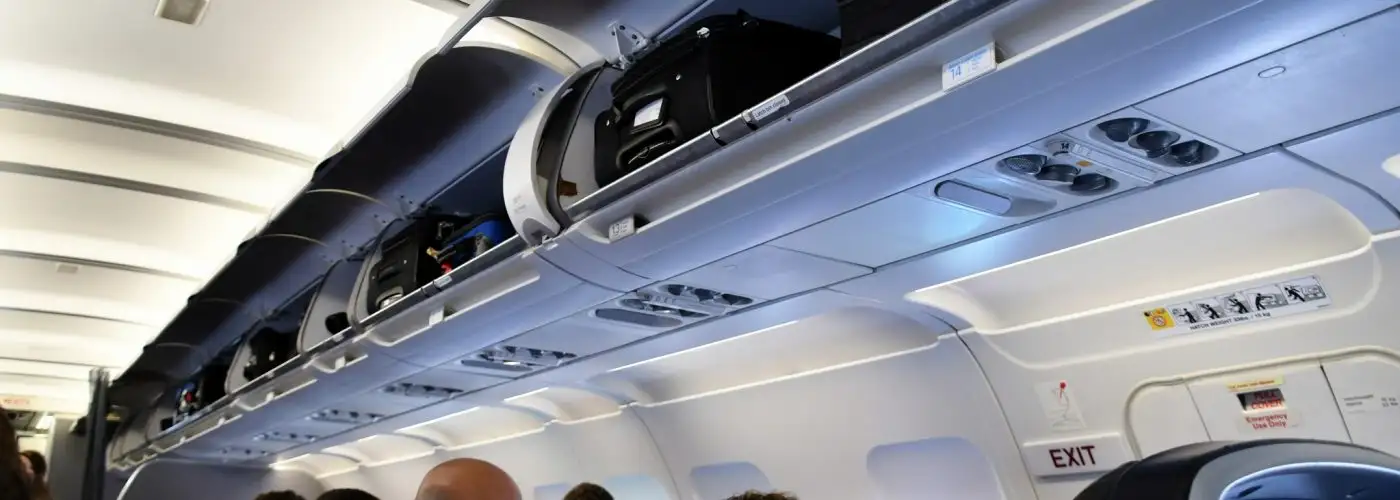When your life is on the line, leave it behind.
That’s the takeaway from too many tragic plane emergencies, including the May 2019 explosion of Aeroflot flight 1492 in Moscow, which killed 41 people. In that incident, a lightning strike forced the pilots to make an emergency landing. The plane caught fire but remained intact, and passengers were prompted to evacuate.
However, as details about the incident have emerged, investigators have signaled that more people could have survived if not for one preventable reason. Video shows passengers dragging carry-on bags with them as they flee the burning plane, and reports suggest the evacuation was slowed by people retrieving their belongings from the overhead bins.
“Reports from people on the plane indicate the evacuation may have been slowed by passengers grabbing their bags. Videos show passengers taking their carry-on bags with them as they exited the plane,” the Association of Flight Attendants said in a statement. “We will never know if more lives could have been saved if the bags were left behind.”
The purpose of posing this question is not to blame the victims of a tragic incident. However, it is a reminder that it’s always worth a refresher on what to do—and what not to do—when you need to evacuate in a plane emergency.
Your Bags Are Never Worth It
The Federal Aviation Administration (FAA) makes no mistake about it: “In the unlikely event that you need to evacuate, leave your bags and personal items behind,” the agency says. “Your luggage is not worth your life. Passengers are expected to evacuate an airplane within 90 seconds. You do not have time to grab your luggage or personal items. Opening an overhead compartment will delay evacuation and put the lives of everyone around you at risk.”
This bears repeating because, as we’ve reported in the past, people seem inclined to do the opposite. Understandably, the idea of leaving things behind is difficult to accept—losing a laptop, passport, or cash can be an inconvenience. Or perhaps the banality of modern airline travel makes travelers complacent in emergency situations, thinking the danger or urgency is overblown. If that’s the case, though, you’ll likely see your possessions again soon.
It’s also worth nothing that with seat sizes shrinking and plane cabins getting more crowded than ever, it could take longer than you’d think to evacuate.
What to Always Do
But as safe as airline travel is, incidents like the Aeroflot fire illustrate the fine line between surviving and perishing in non-crash situations. So, even though you may know the standard onboard safety presentation by heart, here are a few must-do tips for evacuating a plane quickly:
- Look: Locate the nearest emergency exit when you take your seat so you know which way to go
- Listen: In the event of an emergency, listen to the flight attendants’ instructions and follow them precisely. Remember, they’re trained for this.
- Leave it behind: Everything in your baggage can be replaced. Your life or well-being, and that of your fellow passengers, cannot.
More from SmarterTravel:
We hand-pick everything we recommend and select items through testing and reviews. Some products are sent to us free of charge with no incentive to offer a favorable review. We offer our unbiased opinions and do not accept compensation to review products. All items are in stock and prices are accurate at the time of publication. If you buy something through our links, we may earn a commission.
Related
Top Fares From
Today's Top Travel Deals
Brought to you by ShermansTravel
France: 8-Night Paris, Avignon & Nice...
Infinity Worldwide Vacations
 vacation
$2880+
vacation
$2880+
Poconos: 3 Nts in Garden of...
ResortsAndLodges.com
 hotel
$305+
hotel
$305+
7-Nt Canada & New England Cruise,...
Princess Cruises
 cruise
$839+
cruise
$839+




